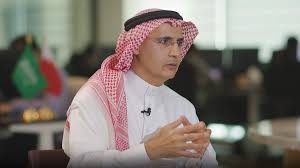Growing up and beginning
Born and raised in Riyadh, he was raised in family values and discipline. He moved to Dhahran to join King Fahd University of Petroleum and Minerals, where he received a bachelor's degree in industrial and financial management with a minor in accounting. He continued his studies in London, where he received an MBA from City University. He then started his career in the largest financial institutions, including Goldman Sachs in London, where he worked as part of the private wealth management team and learned one of his most important lessons: “Success comes only through discipline, commitment and hard work.”
The difficult start
In 2004, Al-Omran decided to establish what was then a bold idea: an office to manage the wealth of Gulf families with a long-term institutional vision. He started from a room in his house and obtained the first license from the Central Bank of Bahrain, because most Gulf countries at the time did not have licensing systems for asset management. Despite the doubts of some, he was able to convince his first customers, and today his relatives account for no more than 6% of total customers. The rest? More than 750 Gulf families trust him and his team.
challenges
- He faced the refusal of some international banks to deal with a company from the Gulf.
- He had to undergo testing and licensing from bodies such as the British FCA, the US SEC, and the Hong Kong Stock Exchange.
- He faced the reluctance of some wealthy people to disclose their wealth and the challenges of building trust.
- But Al-Omran has endured. He founded The Family Office, then a global investment arm called Petiole Asset Management AG in Switzerland, and today oversees assets in excess of 2 billion dollars.
- Al-Omran Opposes the random method of investingHe says:
- “Successful investment does not mean diversifying the portfolios of each bank, but rather a unified strategy implemented by various managers within a 5 to 10-year plan.”
- It should be noted that:
- “90% of wealthy families in the Gulf lose their wealth in the third generation due to excessive spending, poor financial literacy, and multiple heirs.”




